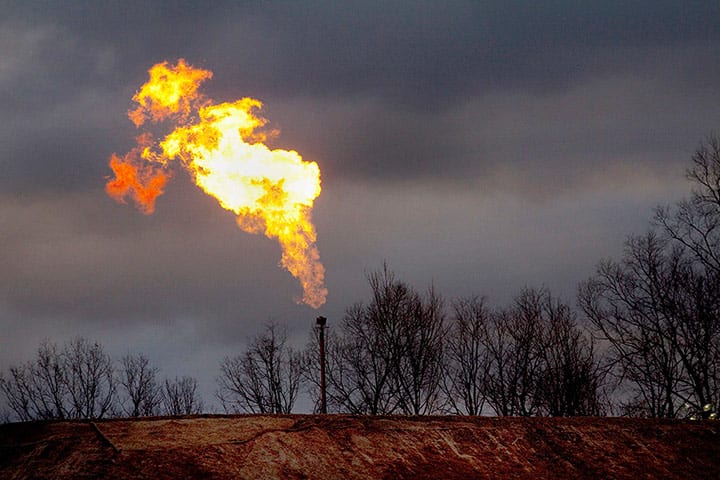UK billionaire Sanjeev Gupta gets it, and has signed a 15-year solar off-take deal to help power his newly acquired Laverton steel works in Victoria. He will build 1GW of solar and storage to power his Whyalla steel works too.
Queensland zinc refiner Sun Metals gets it, and is about to commission a 126MW solar farm that will lower its electricity costs and underpin a $300 million expansion, and more jobs.
Vegetable grower Nectar Farms gets it, and has combined with Neoen for a $550 million project that will include 200MW wind farm, a 20MMW/30MWh battery system to power the country’s biggest greenhouse.
But some people don’t get it, and chair of Manufacturing Australia, James Fazzino, is one of them. He wants Australia to effectively “frack like the Americans”. He sees it as the only avenue to cheap energy.
In a speech delivered to the Australian Energy Week conference in Melbourne on Wednesday, Fazzino said the nation’s high wholesale energy prices were hurting the local manufacturing industry, and forcing many businesses to take their operations offshore.
(Nectar Farms was one of those companies to consider moving its plans offshore, before it was presented with the cheaper renewables option and electrification of the heating process.).
“Seizing an energy advantage has helped the US to become what I’d argue is the most attractive place to invest in manufacturing anywhere in the world, and it’s not surprising that Australia’s best manufacturers are getting in on that action,” Fazzino said.
“Where we want to be is equal to the US: $35/MWh for electricity and three bucks for gas. …The brutal fact is, that’s what perfect looks like.
“I can assure you that (in manufacturing) the way (to get) prices down is by being really innovative and commercial.
“In the US, if you look at the companies that actually drove US gas costs down, they were the wild-catters, right? They adopted technology which we’ve refused to do in Australia. The fact that we still talk about fracking is bizarre. You know, cos it’s proved you can do that safely.
Fazzino seems to have missed the bit about fracking in Australia, and that even if it was widely allowed, would not be anywhere near as cheap in the US. And it seems he’s missed the alternatives.
As Ivor Frischknecht, the CEO of the Australian Renewable Energy Agency, noted in a question to Fazzino, looking to the US as the ideal for energy prices, and for how to get to that ideal, could be wrongheaded.
“The reason we had very low energy prices for quite a while in Australia is that the state governments over-invested in generation, and then you turn that over to a market place and markets do what they do,” Frischknecht said.
“And in fact, that’s the situation in many of the cheapest US states,” he added: “the cheap gas has come in, the coal is still there, they’re over-supplied with generation, so prices are quite low.”
Meanwhile, in Australia, “whether it’s renewables plus firming, or new gas, new coal; they all come in kind of in the $60-$90/MWh range,” Frischknecht added.
“I think that’ll go down over time, just as renewables get cheaper and we figure out how to really harness them, and batteries get cheaper as well.
“But if you are stuck in this $60-$90/MWh zone, do we have a viable business in that range or do we need to look at some sort of long-term subsidy, because it’s in the long-term greater good to subsidise energy prices?”
Speaking earlier on a conference panel, Frischknecht made his own comparison to the gas industry, noting that one of the key barriers still holding back the shift to renewables was the fact that some of the commercial aspects weren’t “very mature” yet.
“Off-take agreements are still quite expensive,” he said.
“If you look at the oil and gas industry and how that’s evolved over decades, you started out by insisting on an off-take agreement before you drill a well.
“Now, of course, you drill a well at risk, and then you have confidence that you will be able to sell the oil or gas that comes out (on the market).
“We haven’t had that sort of evolution, that drives development quite as much, or the cost of capital down quite as much.”
Why? Perhaps because Australian manufacturers are still stuck on the idea of cheap gas, and still under the impressiong that renewables cannot deliver what manufacturing needs in terms of energy supply.
“Does manufacturing need to do more to sign contracts, to make long-term agreements, so that there is certainty there for the industry?” asked Plenary chair Elysse Morgan from ABC TV’s The Business.
“The answer is unquestionably yes,” said Fazzino, pointing out that his former company had “basically underwritten” the development of major gas pipelines in Australia’s Northern Territory through 15-year gas contracts.
“I think the role manufacturers have to play is to say, actually… we need to partner with the power industry and sign long-term contracts,” he said.
But he added, “manufacturers require power 24/7 and, frankly, there’s little interest in having power that’s available three hours a day when you can have it 24/7.
“We shouldn’t be a first-mover, we should be a fast follower.
“I don’t believe we should be on the bleeding edge, I think that’s really expensive, and given the (rate of) technology change, it’s likely we’ll back the wrong horses.”









